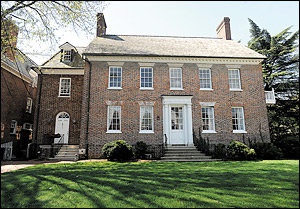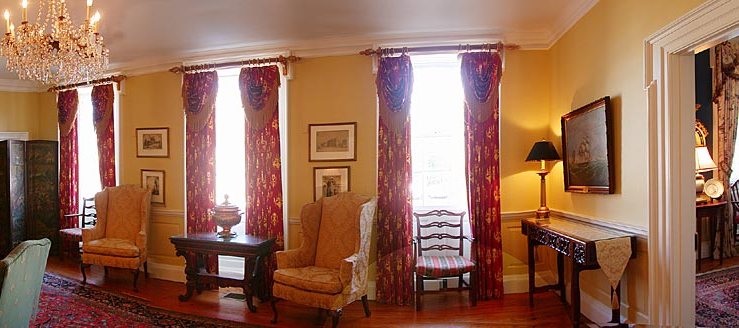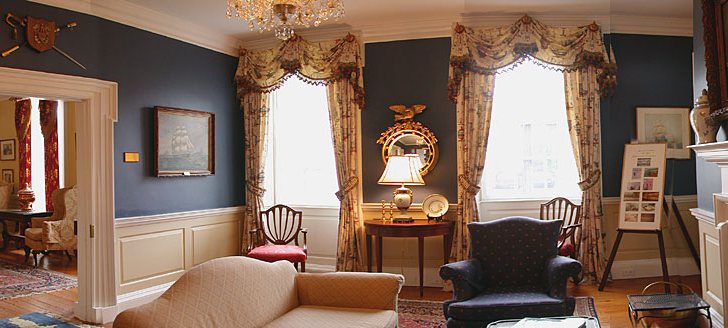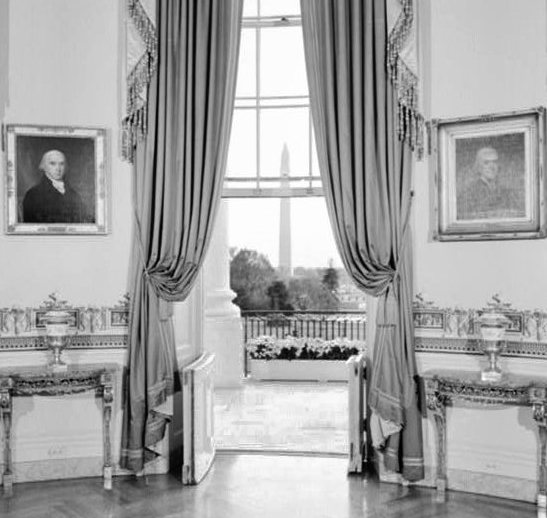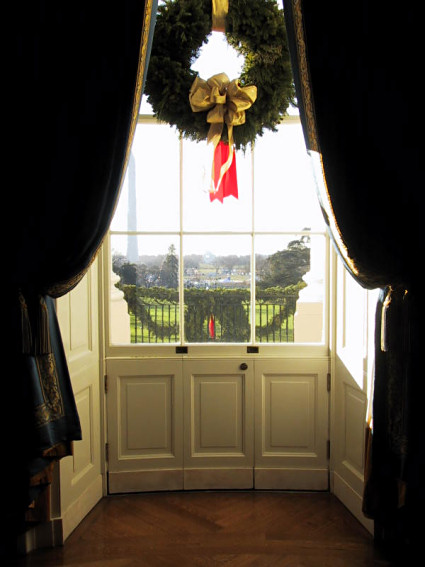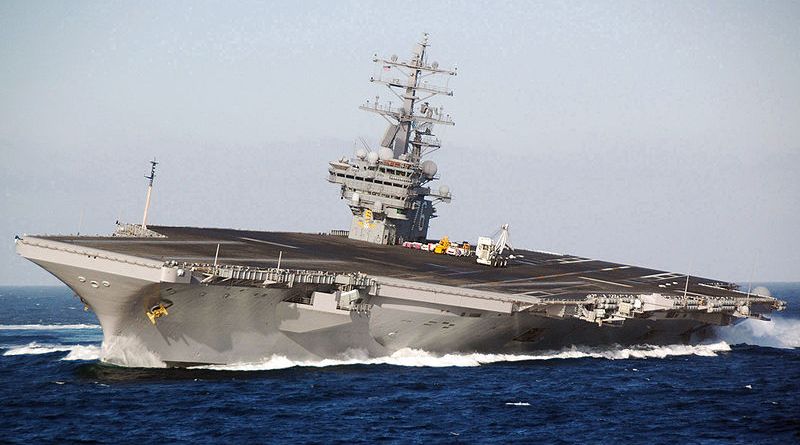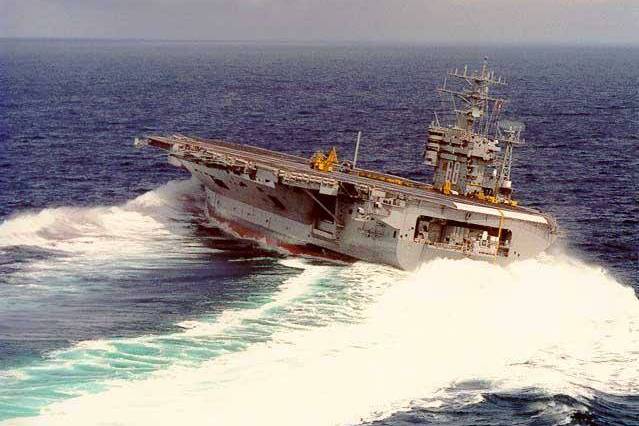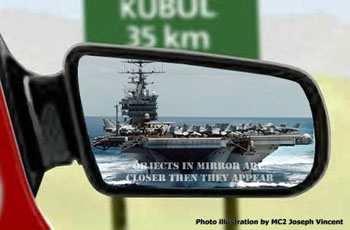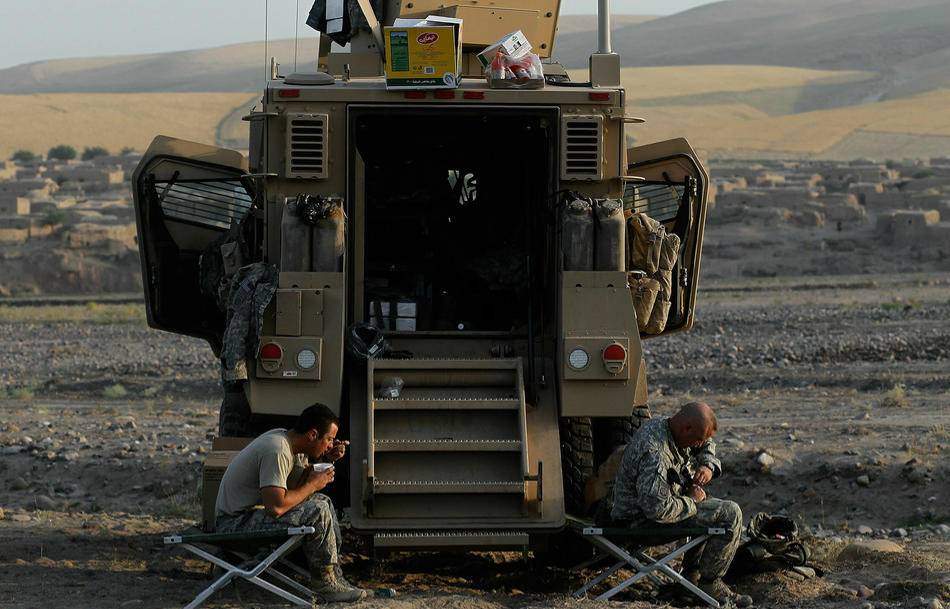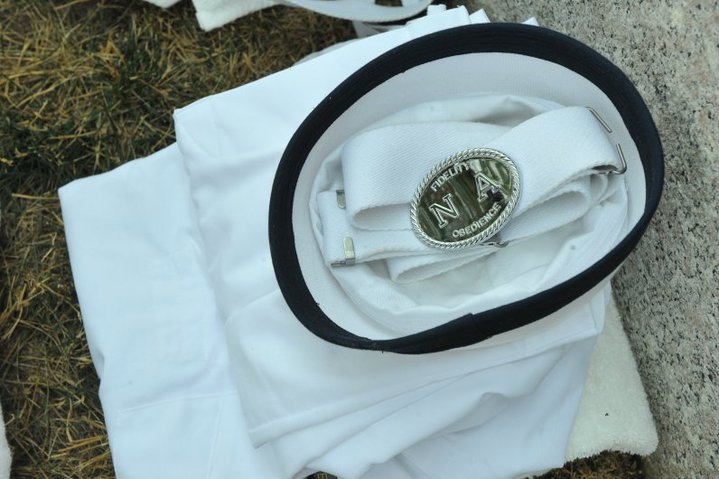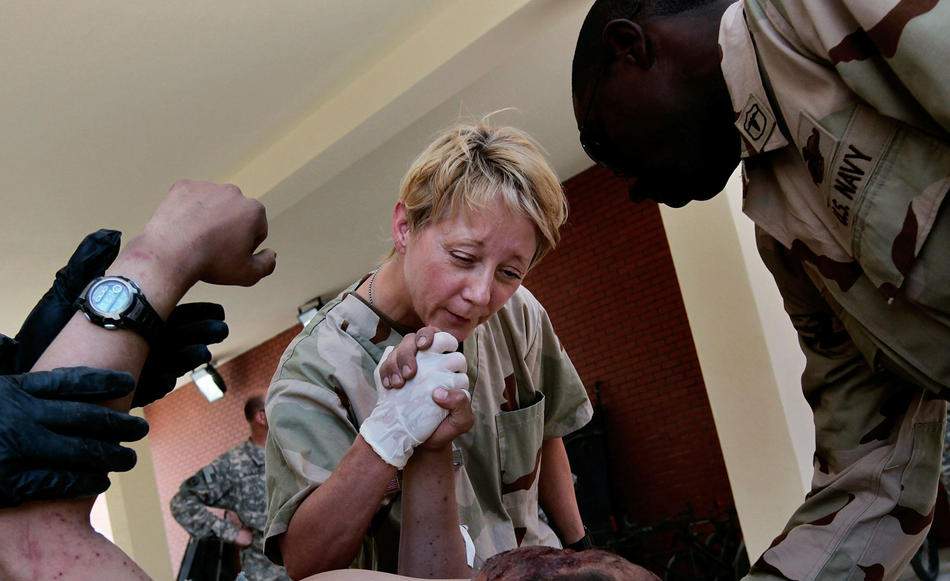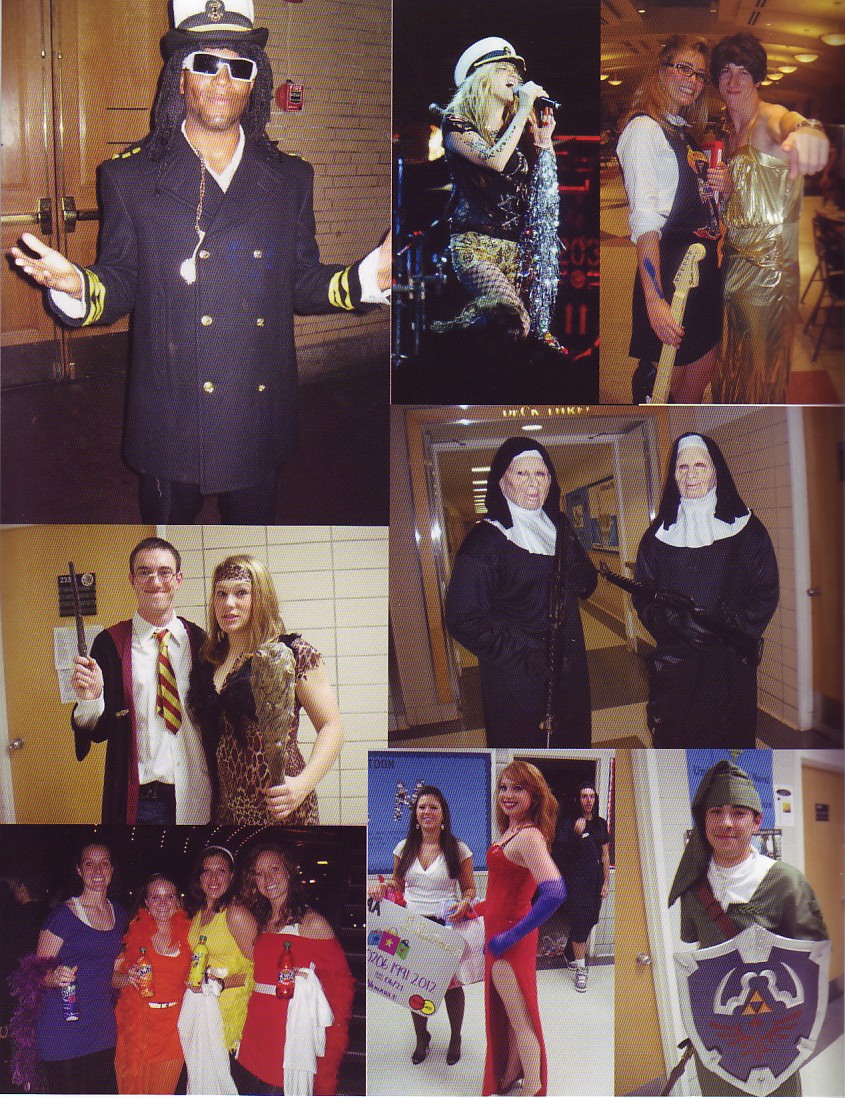06 Feb 2011
The Patton Prayer
Do you remember the scene from the movie "Patton" where the German
offensive in the Battle of the Bulge is being aided by bad weather,
and the General calls for his chaplain to produce a "weather prayer"?
In real life, that was Third Army chaplain James H. O'Neill.
Monsignor O'Neill has written an inspiring account at
link Here is
a summary.
A telephone call to the Third Army Chaplain on the morning of
December 8, 1944 – "This is General Patton; do you have a good
prayer for weather? We must do something about those rains if we
are to win the war." My reply was that I know where to look for such
a prayer, that I would locate one, and report within the hour ...
The few prayer books at hand contained no formal prayer on weather
that might prove acceptable to the Army Commander. Keeping
his immediate objective in mind, I typed an original on a 5" x 3"
filing card:
|
Almighty and most merciful Father, we humbly beseech Thee, of Thy
great goodness, to restrain these immoderate rains with which we
have had to contend. Grant us fair weather for Battle. Graciously
hearken to us as soldiers who call upon Thee that, armed with Thy
power, we may advance from victory to victory, and crush the
oppression and wickedness of our enemies and establish Thy justice
among men and nations.
|
[I] crossed the quadrangle of the old French military barracks,
and reported to General Patton. He read the prayer copy, returned
it to me with a very casual directive, "Have 250,000 copies printed
and see to it that every man in the Third Army gets one."
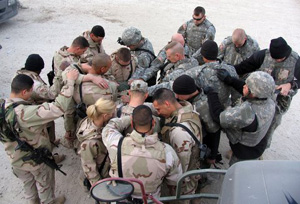 "Chaplain, how much praying is being done in the Third Army?" [asked the
General. I responded,] "Does the General mean by chaplains, or by the
men?" "By everybody," he replied. To this I countered: "I am afraid to
admit it, but I do not believe that much praying is going on. When
there Is fighting, everyone prays, but now with this constant rain
– when things are quiet, dangerously quiet, men just sit and
wait for things to happen. Prayer out here is difficult. Both chaplains
and men are removed from a special building with a steeple. Prayer to
most of them is a formal, ritualized affair, involving special posture
and a liturgical setting. I do not believe that much praying is being done."
"Chaplain, how much praying is being done in the Third Army?" [asked the
General. I responded,] "Does the General mean by chaplains, or by the
men?" "By everybody," he replied. To this I countered: "I am afraid to
admit it, but I do not believe that much praying is going on. When
there Is fighting, everyone prays, but now with this constant rain
– when things are quiet, dangerously quiet, men just sit and
wait for things to happen. Prayer out here is difficult. Both chaplains
and men are removed from a special building with a steeple. Prayer to
most of them is a formal, ritualized affair, involving special posture
and a liturgical setting. I do not believe that much praying is being done."
The General, seated at his desk, leaned back in his swivel chair,
toying with a long lead pencil between his index fingers.
"Chaplain, I am a strong believer in Prayer. There are three ways that men get what they want; by planning, by working, and by Praying. Any great military operation takes careful planning, or thinking. Then you must have well-trained troops to carry it out: that's working. But between the plan and the operation there is always an unknown. That unknown spells defeat or victory, success or failure. It is the reaction of the actors to the ordeal when it actually comes. Some people call that getting the breaks; I call it God. God has His part, or margin in everything, That's where prayer comes in. Up to now, in the Third Army, God has been very good to us. We have never retreated; we have suffered no defeats, no famine, no epidemics. This is because a lot of people back home are praying for us. We were lucky in Africa, in Sicily, and in Italy. Simply because people prayed. But we have to pray for ourselves, too. A good soldier is not made merely by making him think and work. There is something in every soldier that goes deeper than thinking or working – it's his "guts."
It is something that he has built in there: it is a world of truth
and power that is higher than himself. Great living is not all
output of thought and work. A man has to have intake as well.
I don't know what you call it, but I call it Religion, Prayer, or God."
"I wish you would put out a Training Letter on this subject of Prayer
to all the chaplains; write about nothing else, just the importance
of prayer. Let me see it before you send it. We've got to get not
only the chaplains but every man in the Third Army to pray. We must
ask God to stop these rains. These rains are that margin that hold
defeat or victory. If we all pray, it will be like what Dr. Carrel
said [the allusion was to a press quote some days previously when
Dr. Alexis Carrel, one of the foremost scientists, described prayer
'as one of the most powerful forms of energy man can generate'], it
will be like plugging in on a current whose source is in Heaven.
I believe that prayer completes that circuit. It is power."
With that the General arose from his chair, a sign that the interview
was ended. I returned to my field desk, typed Training Letter No. 5
while the "copy" was "hot," touching on some or all of the General's
reverie on Prayer, and after staff processing, presented it to
General Patton on the next day. The General read it and without
change directed that it be circulated not only to the 486 chaplains,
but to every organization commander down to and including the
regimental level. Three thousand two hundred copies were
distributed to every unit in the Third Army over my signature
as Third Army Chaplain.
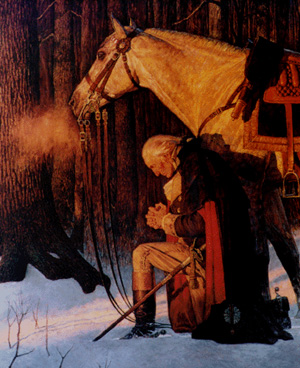 Excerpts ...
"Those who pray do more for the world than those who fight; and
if the world goes from bad to worse, it is because there are more
battles than prayers. 'Hands lifted up,' said Bosuet, 'smash more
battalions than hands that strike.' Gideon of Bible fame was least
in his father's house. He came from Israel's smallest tribe. But
he was a mighty man of valor. His strength lay not in his military
might, but in his recognition of God's proper claims upon his life.
He reduced his Army from thirty-two thousand to three hundred men
lest the people of Israel would think that their valor had saved
them. We have no intention to reduce our vast striking force. But
we must urge, instruct, and indoctrinate every fighting man to
pray as well as fight. In Gideon's day, and in our own,
spiritually alert minorities carry the burdens and bring the victories."
Excerpts ...
"Those who pray do more for the world than those who fight; and
if the world goes from bad to worse, it is because there are more
battles than prayers. 'Hands lifted up,' said Bosuet, 'smash more
battalions than hands that strike.' Gideon of Bible fame was least
in his father's house. He came from Israel's smallest tribe. But
he was a mighty man of valor. His strength lay not in his military
might, but in his recognition of God's proper claims upon his life.
He reduced his Army from thirty-two thousand to three hundred men
lest the people of Israel would think that their valor had saved
them. We have no intention to reduce our vast striking force. But
we must urge, instruct, and indoctrinate every fighting man to
pray as well as fight. In Gideon's day, and in our own,
spiritually alert minorities carry the burdens and bring the victories."
"Urge all of your men to pray, not alone in church, but everywhere.
Pray when driving. Pray when fighting. Pray alone. Pray with others.
Pray by night and pray by day. Pray for the cessation of immoderate
rains, for good weather for Battle. Pray for the defeat of our
wicked enemy whose banner is injustice and whose good is oppression.
Pray for victory. Pray for our Army, and Pray for Peace."
My "Prayer Conference" with General Patton was 8 December.
The 250,000 copies of the Prayer Card
and Training Letter No. 5 reached the troops 12-14 December.
On the 19th of December, the Third Army turned from East to North to
meet the attack. As General Patton rushed his divisions north from
the Saar Valley to the relief of the beleaguered Bastogne, the
prayer was answered. On December 20, to the consternation of the
Germans and the delight of the American forecasters who were
equally surprised at the turn-about, the rains and the fogs ceased.
For the better part of a week came bright clear skies and perfect
flying weather. Our planes came over by tens, hundreds, and thousands.
They knocked out hundreds of tanks, killed thousands of enemy troops
in the Bastogne salient, and harried the enemy as he valiantly tried
to bring up reinforcements. The 101st Airborne, with the 4th, 9th,
and 10th Armored Divisions, which saved Bastogne, and other
divisions which assisted so valiantly in driving the Germans home,
will testify to the great support rendered by our air forces.
General Patton prayed for fair weather for battle. He got it.
It was late in January of 1945 when I saw the Army Commander again.
This was in the city of Luxembourg. He stood directly in front of me,
smiled: "Well, Padre, our prayers worked. I knew they would." Then he
cracked me on the side of my steel helmet with his riding crop.
That was his way of saying, "Well done."

 I grabbed an e-tool, helped them bury the poor girl, the innocent
lady, and then got them on their way. I went over, and I sat
down on the edge of a trench line where there is a ready bunker.
Out of the ready bunker probably 10 minutes after I sat down,
just cooling it, came two officers wearing their epaulets, obviously
from that battery position. Neither one had a weapon on them,
but I could have shot them easily. My Marines probably would
have been quite impressed that their battalion commander had
shot a couple people, and for a moment, I thought, "That girl
was murdered and chopped into pieces in their battery position.
I am going to kill them," and I came this close to doing it. The
only thing that stopped me was I don't like living life with any
regrets, and somehow my training kicked in, and they right away
threw their hands up when they saw me, and so I took them
prisoner. I came that close to doing it.
I grabbed an e-tool, helped them bury the poor girl, the innocent
lady, and then got them on their way. I went over, and I sat
down on the edge of a trench line where there is a ready bunker.
Out of the ready bunker probably 10 minutes after I sat down,
just cooling it, came two officers wearing their epaulets, obviously
from that battery position. Neither one had a weapon on them,
but I could have shot them easily. My Marines probably would
have been quite impressed that their battalion commander had
shot a couple people, and for a moment, I thought, "That girl
was murdered and chopped into pieces in their battery position.
I am going to kill them," and I came this close to doing it. The
only thing that stopped me was I don't like living life with any
regrets, and somehow my training kicked in, and they right away
threw their hands up when they saw me, and so I took them
prisoner. I came that close to doing it.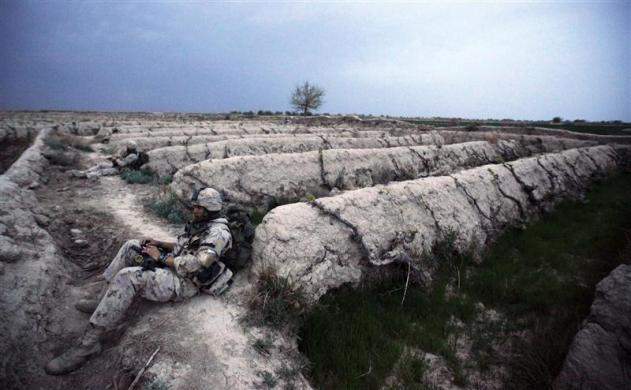 04 Feb 2011
04 Feb 2011
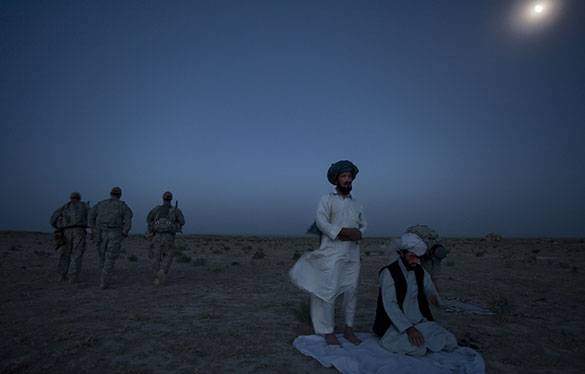

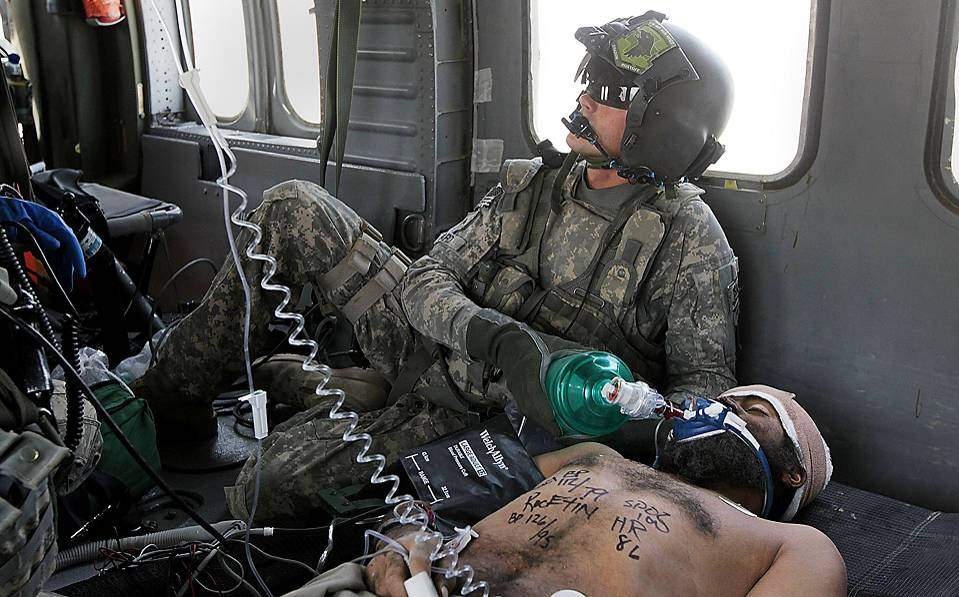

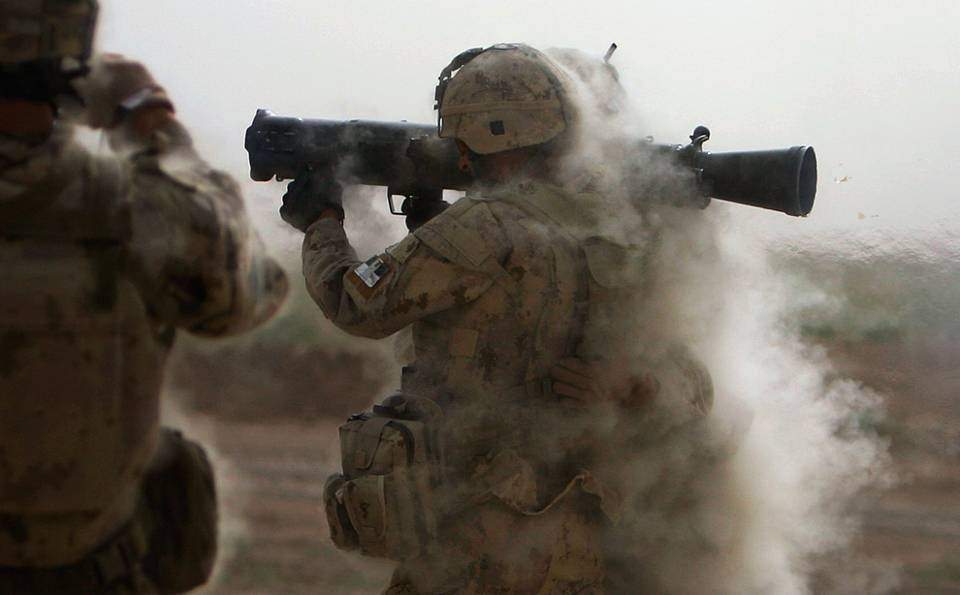
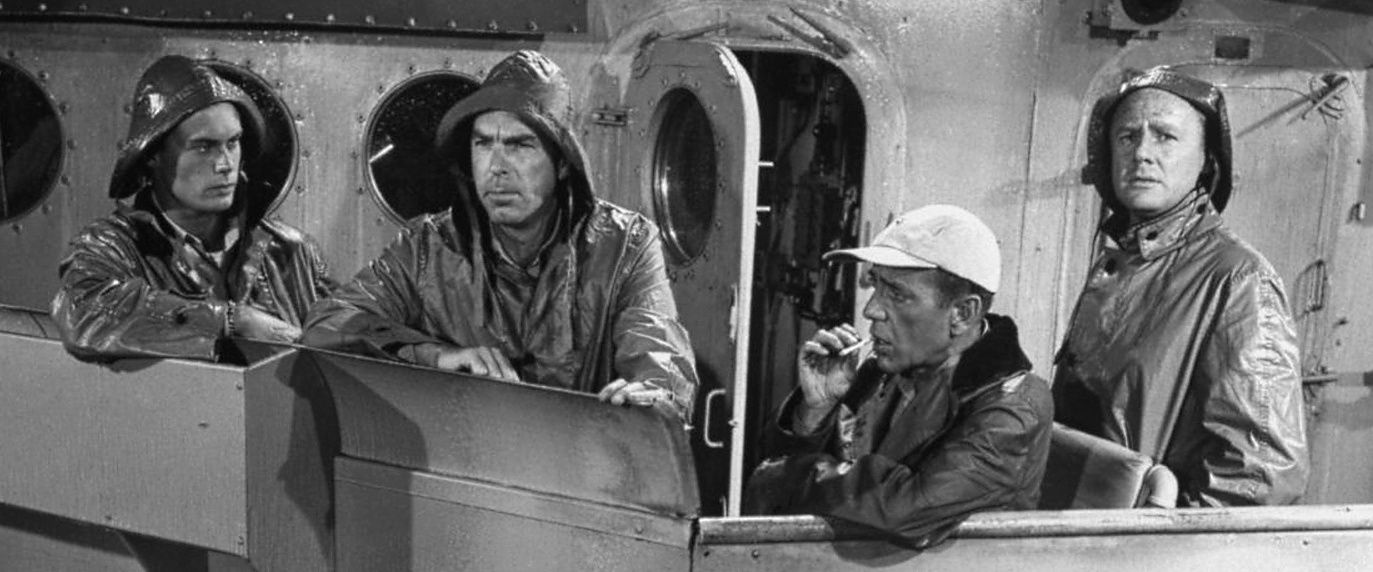
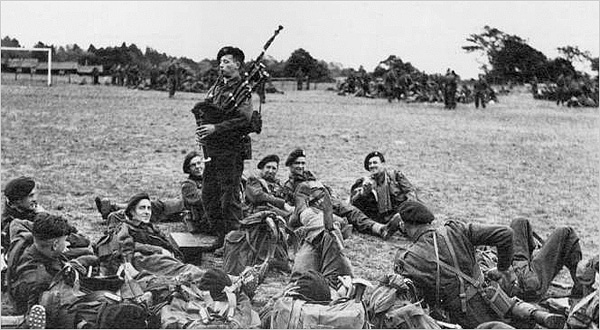

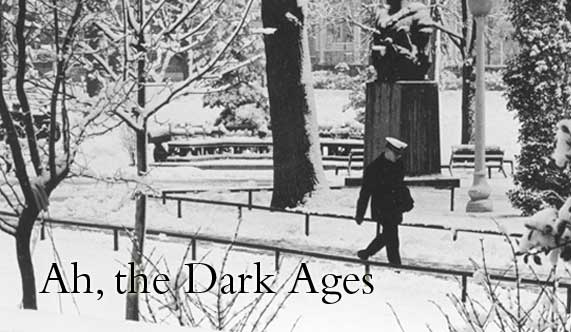 09 Feb 2011
09 Feb 2011 "Chaplain, how much praying is being done in the Third Army?" [asked the
General. I responded,] "Does the General mean by chaplains, or by the
men?" "By everybody," he replied. To this I countered: "I am afraid to
admit it, but I do not believe that much praying is going on. When
there Is fighting, everyone prays, but now with this constant rain
– when things are quiet, dangerously quiet, men just sit and
wait for things to happen. Prayer out here is difficult. Both chaplains
and men are removed from a special building with a steeple. Prayer to
most of them is a formal, ritualized affair, involving special posture
and a liturgical setting. I do not believe that much praying is being done."
"Chaplain, how much praying is being done in the Third Army?" [asked the
General. I responded,] "Does the General mean by chaplains, or by the
men?" "By everybody," he replied. To this I countered: "I am afraid to
admit it, but I do not believe that much praying is going on. When
there Is fighting, everyone prays, but now with this constant rain
– when things are quiet, dangerously quiet, men just sit and
wait for things to happen. Prayer out here is difficult. Both chaplains
and men are removed from a special building with a steeple. Prayer to
most of them is a formal, ritualized affair, involving special posture
and a liturgical setting. I do not believe that much praying is being done." Excerpts ...
"Those who pray do more for the world than those who fight; and
if the world goes from bad to worse, it is because there are more
battles than prayers. 'Hands lifted up,' said Bosuet, 'smash more
battalions than hands that strike.' Gideon of Bible fame was least
in his father's house. He came from Israel's smallest tribe. But
he was a mighty man of valor. His strength lay not in his military
might, but in his recognition of God's proper claims upon his life.
He reduced his Army from thirty-two thousand to three hundred men
lest the people of Israel would think that their valor had saved
them. We have no intention to reduce our vast striking force. But
we must urge, instruct, and indoctrinate every fighting man to
pray as well as fight. In Gideon's day, and in our own,
spiritually alert minorities carry the burdens and bring the victories."
Excerpts ...
"Those who pray do more for the world than those who fight; and
if the world goes from bad to worse, it is because there are more
battles than prayers. 'Hands lifted up,' said Bosuet, 'smash more
battalions than hands that strike.' Gideon of Bible fame was least
in his father's house. He came from Israel's smallest tribe. But
he was a mighty man of valor. His strength lay not in his military
might, but in his recognition of God's proper claims upon his life.
He reduced his Army from thirty-two thousand to three hundred men
lest the people of Israel would think that their valor had saved
them. We have no intention to reduce our vast striking force. But
we must urge, instruct, and indoctrinate every fighting man to
pray as well as fight. In Gideon's day, and in our own,
spiritually alert minorities carry the burdens and bring the victories."